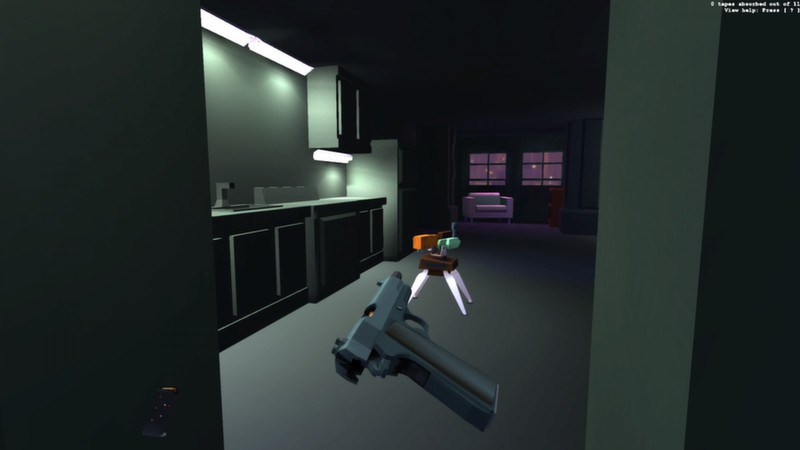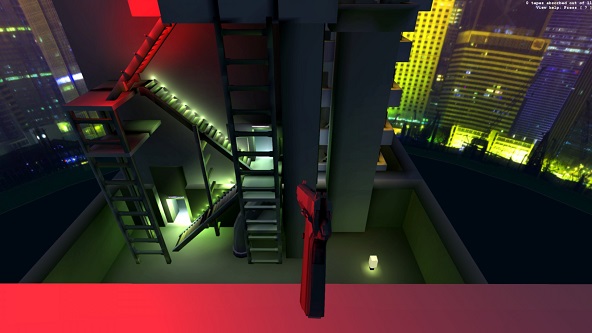For over a month during high school, I played a game called Receiver for at least an hour every day. Initially this was because I was hell-bent on beating it, but as I tried to finish this short little game over and over it became an abnegative, almost meditative experience. Receiver is a first-person shooter made by Wolfire Games, originally developed as part of the 7 Day FPS Challenge. At its core, it’s a game where the player moves through a semi-randomly generated world, fighting robots and collecting a set of 11 tapes. This concept is expanded into a game which, for the right player, uses its mechanical difficulty to highlight its themes and create extremely engaging gameplay.
Receiver’s main claim to fame is its gun mechanics, which are some of the closest to operating an actual gun you can find in video games: every action you can perform with a handgun has a key bound to that action in-game. For example, if you’re using the basic handgun and want to reload, you have to remove the clip from the handgun, put the gun in its holster, insert bullets one by one into the clip, pull your gun back out of its holster, put the clip back into the gun, and cock said gun. The closest thing you get to a tutorial is being able to open a list of all the key commands for your gun, and the devs decided to give you a convenient ‘drop whatever you’re holding’ button that has no purpose in-game beyond letting the player accidentally drop their gun while attempting to use it.

On top of that, Reciever’s world operates on a relatively simple, but extremely harsh, ruleset. taking a single bullet kills you. Getting hit by one of the small flying, electrified drones kills you, falling off of the endless skyscraper you’re exploring kills you. Falling relatively short distances kills you: Indeed attempting to travel down a flight of steps at a full sprint is liable to kill you.
The interesting thing about having a game that’s so difficult to actually operate is that is requires an extremely high level of focus for the player to learn and play the game. By necessity it requires extremely deep immersion. The kind of immersion that, once you get good at playing, has you trying to dodge a slew of bullets by near-leaping sideways out of your chair when you mess up.
However, it is not the game’s mechanical difficulty alone that makes it special. It is that fact that it’s difficulty is almost exclusively mechanical difficulty. If it were simpler to play, you would likely see every environment that it has to offer in under an hour, and anyone remotely versed in FPS and stealth gameplay would see nothing new. To put it simply the game is highly repetitive.

This combination of challenge is, for a normal gaming audience, terrible. But Receiver isn’t so much a game as it is a sort of skill. This is why I am willing to call the game meditative. Zen buddhism explores the concept of unconscious mastery of a skill as a form of meditation: That being able to do something extremely complex tasks without thinking allows the actor to enter a special mental space. The historical example for this idea is archery, but the exact same idea of unconscious mastery through repetition is ever-present in, and fundamental to, Receiver.
I never actually beat Receiver, and I have only found one documented case of it being beaten . This game, that I devoted days to can be beaten in 25 minutes. Frankly, I would have been unsurprised to learn that it was in fact unbeatable. The game’s story is based on the concept that you are trapped in some form of lower reality, and collecting the tapes (messages from higher beings) will somehow set you free. A simple enough narrative that has a strong links with both buddhist philosophy and the game’s mechanics. Receiver is very cyclical. the second you fail you start anew, with a similar but different map, possibly a different gun, but the same goal and exact same behaviours. And it is because so little changes when you play it that this Zen state is explorable in Receiver.
